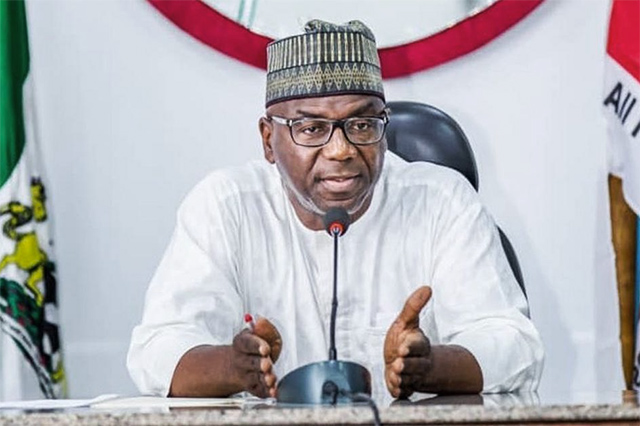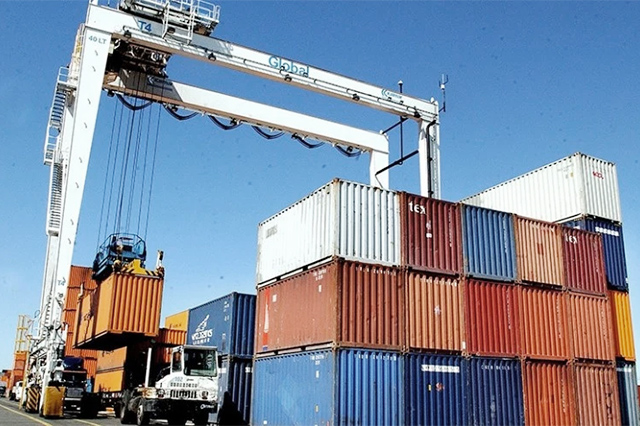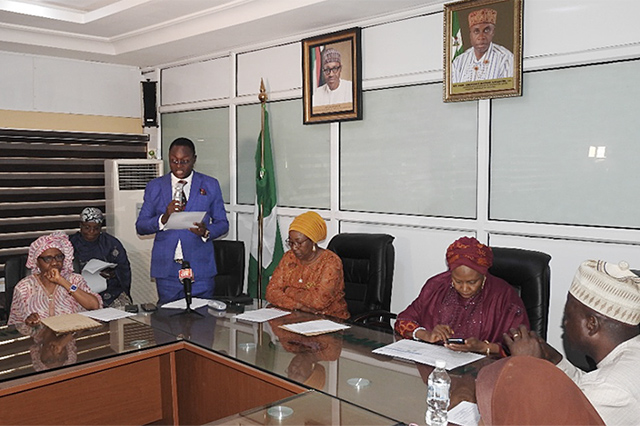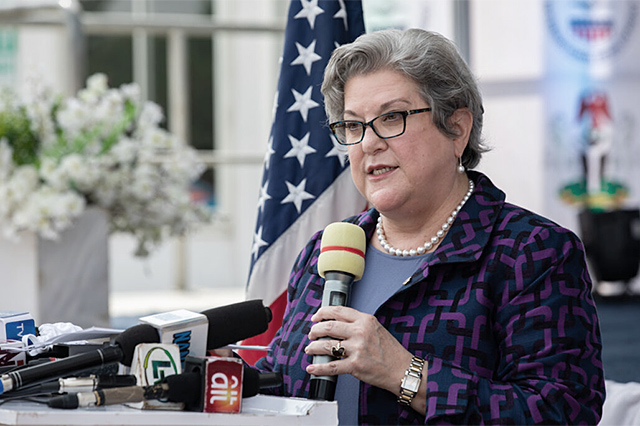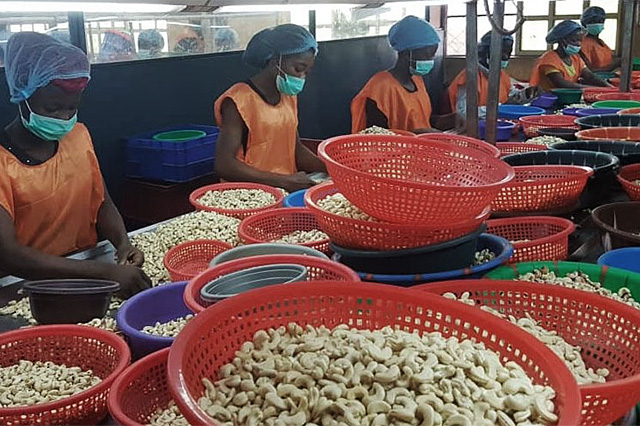AGOA benefits: Still a long way for Nigeria
The African Growth and Opportunity Act, a United States’ trade policy, enacted in 2000 is a legislation that allows exporters from sub-Saharan Africa to export some goods to the United States duty-free. The export opportunity, which was supposed to last from 2000 to 2020, has just been extended to 2025.
Under the policy, 38 African countries including Nigeria are eligible to export 7,000 product lines tariff and quota free to the US market.
Although the renewal is seen as a welcome development in view of the quest by the government to boost export earnings, there are fears that Nigeria may fail to take full advantage of the 10 years extension because of poor infrastructure and quality of exports.
The President, Nigerian Institute of Food Science and Technology, Dr. Chijioke Osuji, who noted that the renewal would open opportunities for Nigeria, said that the time was right to work on standards and value addition to the country’s exports, which were often rejected abroad for lack of adherence to acceptable standards.
Osuji, an analyst at the Africa Rice Centre, Federal Ministry of Agriculture and Rural Development, emphasised the need to urgently build infrastructure and increase investment in agriculture.
He said, “We need to improve our infrastructure to enhance value addition to our exports. Agriculture is an area that Nigeria can leverage as regards the policy but we need to improve on quality so that cases of rejected exports will be minimised.”
For the President of the Manufacturers Association of Nigeria, Dr. Frank Jacobs, issues around poor infrastructure, weak manufacturing base and high cost of doing business in Nigeria have continued to hinder Nigeria from taking advantage of the policy.
Jacobs had expressed this sentiment when the issue of economic partnership with Europe came up. He opposed the partnership on the basis of the fact that Nigeria’s industrial base was not strong enough and the country would be placed at a disadvantaged position if it entered into such a trade partnership.
He said, “The industrial sector in Nigeria is a fledging one that has yet to find its feet. It has, over the years, gone through several challenges and is still import-dependent for most essential inputs.
“As the President of MAN, I recognise the huge disadvantage Nigeria would be exposed to if the country opens up its economy without caution to indiscriminate trade relations with advanced countries.
“First, the advanced countries will trade capital goods such as plant and machinery, medical equipment, agricultural machinery, aviation equipment and airplanes, while Nigeria will only trade commodity goods such as cocoa, pepper and sesame seed.
“The implication will be that while the advanced countries get richer and more industrialised, Nigeria will remain a commodity country and perpetually unindustrialised.”
Nigeria’s poor performance at AGOA
Experts have said that Nigeria does not have the competitive advantage when compared with most of the nations exporting goods under the AGOA policy.
For instance, in 2014, nearly 15 years after the approval of AGOA, Nigeria’s exports to the US under the policy totalled $2.6m while the exports from South Africa exceeded $1.2bn.
According to data from the National Bureau of Statistics, in 2015, Nigeria recorded the lowest exports in three years. The value of export, according to the NBS, declined from N16.304bn in 2014 to N9.729bn in the fourth quarter of 2015, representing a decline of 40.3 per cent.
Commenting on the trade relationship between Nigeria and the US under the AGOA policy, the President of the Nigerian-American Chamber of Commerce, Chief Bintan Famutimi, regretted the imbalance in the equation and maintained that the time was ripe for Nigeria to break away from sole dependency on oil as its major export.
Speaking during a conference to educate stakeholders about exporting to the US under the policy, Famutimi observed that the only meaningful trade relationship Nigeria had enjoyed with US under AGOA had been in the area of petroleum products, adding that it was no wonder the country’s economy came crashing when the relationship ended on discovery of Shale oil by the US.
He said, “Petroleum products continued to account for the largest portion of the US AGOA imports with a 69 per cent share of overall AGOA imports in 2014. In the same year, the US imports decreased (mostly oil) from Nigeria by 67 per cent.”
He attributed the reason for this downward twist to the drop in the US import of merchandise associated with oil and stressed the need to break the jinx of “our dependence on oil as our key foreign exchange earner.”
Famutimi said, “How do we, for instance, with our enormous material and human resource potential continue to explain our inability to develop our agro-allied or apparel industry? Even against the global decline in US imports from Sub-Saharan Africa, should Nigeria not be the leader on AGOA exports?
“In 2014, the US AGOA imports totalled $14.2bn, 47 per cent less than the previous year, mainly due to a 55 per cent decrease in petroleum product imports. With these fuel products excluded, AGOA imports – almost exclusively dominated by raw materials – were $4.4bn, decreasing by 10 per cent as compared to 2013.”
Although President Muhammadu Buhari and stakeholders in the private sector have expressed a lot of hope of Nigeria taking advantage of the 10-year extension, the Zonal Vice-President, South West, Nigerian Association of Small and Medium Enterprises, Mr. Oladipo Jemi-Alade, has observed that Nigeria has not shown any sign that it is ready for policy, even with the extension.
Jemi-Alade recalled what happened during the 2015 AGOA forum, which he attended in Libreville, Gabon, in August.
According to him, there were lots of efforts put in by African countries to promote the SMEs and their products in their domain at the event, adding that such efforts were lacking on the part of the Nigerian government.
He said, “Our experience is that the government is not doing enough to build capacity of the SMEs the way governments of other African countries are doing. Also, Nigeria does not have a clear cut programme on AGOA promotion.
“I was in Libreville during the 2015 AGOA conference and I observed that small businesses from Kenya, Uganda, South Africa, Benin Republic and Rwanda came with their products, which they exhibited at the event. But I did not see a single SME or product from Nigeria.
“Also, all the senators from these African countries and those of the various states in America were present at the event but there was no senator from Nigeria.”
The Chairman, buyNaija Project Management Team of the Ministry of Industry, Trade and Investment, Mr. William Otabil, agreed with Jemi-Alade.
According to Otabil, without an effort to grow the SME sector, Nigeria will not be able to take advantage of the AGOA policy.
He said some of the SME operators in Nigeria were making very quality products that could meet international standards but regretted that those products lacked value addition.
“Small business operators in Kano are producing good quality spices and other items that can be exported but these items do not have the National Agency for Food Drug Administration and Control numbers or packaging.
“Many of the operators need guidance and input in terms of investment and they will produce goods that meet international standards. Also, we need to boost local patronage so that these operators can make enough money to buy machinery to enhance value addition.”
The Chief Executive Officer, Nigerian Export Promotion Council, Mr. Segun Awolowo, said all hands must be on deck to ensure that by June when the ban on food crop exports to the European Union would be lifted, Nigeria would be in a position to export without any problem.
The European Union in 2015 had banned beans, sesame seeds, melon seeds, dried fish and meat, peanut chips and palm oil from Nigeria for containing a high level of unauthorised pesticide. The ban is due to be lifted in June.
According to Awolowo, the government and the NEPC have been holding programmes to train exporters in the SME sector of the economy in standards and quality of goods that meet international standards.
Among the programmes initiated by the government to build capacity for small businesses are Zero to Export initiative targeted at providing hands-on training for nascent exporters particularly operators in the SMEs; Graduate Internship Scheme; and Youth Empowerment Export Skills Acquisition Project.
Awolowo said, “The overall objective is to integrate the Graduate Internship Scheme products into the development of non-oil export to ensure that interns are adequately equipped to manage export-oriented businesses on their own, and become attractive to export manufacturing companies for employment, among others.”









